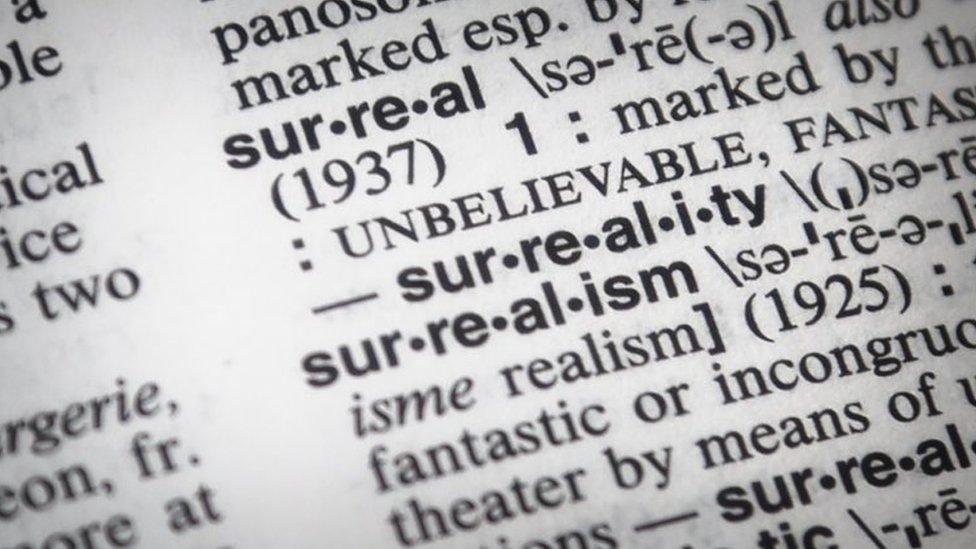Merriam-Webster's word of the year sums up 2016
- Published

"Surreal" saw a spike in look-ups after the Brussels attacks, the Bastille Day massacre in Nice and the attempted coup in Turkey.
Dictionary Merriam-Webster has named "surreal" as its word of the year.
The lexicographer selected surreal - which means "unbelievable, fantastic" - after spikes in searches following terrorist attacks and the US election.
The attacks in Brussels, the Bastille Day massacre in Nice and the attempted coup in Turkey all saw an increase in how often people searched for the word.
But the single biggest spike in look-ups came the day after Donald Trump's election, said Merriam-Webster.
"It just seems like one of those years," said Peter Sokolowski, the dictionary's editor at large.
"Surreal" is also defined as meaning "marked by the intense irrational reality of a dream", according to Merriam Webster.
It joins Oxford's "post-truth" and Dictionary.com's "xenophobia" as the top word of 2016.
Are these the most important events in modern US history?
There were also smaller jumps in searches for the word after the death of Prince in April and the June shootings at the Pulse nightclub in Orlando, Florida.
"Surreal" first emerged around 1924, when a group of European poets, artists and filmmakers founded the Surrealism movement, which focused on accessing the truths of the unconscious mind by breaking down rational thought.
Merriam-Webster, which first began tracking search trends in 1996, found a similar search spike for the word after the 9/11 attacks, according to Mr Sokolowski.
"We noticed the same thing after the Newtown shootings, after the Boston Marathon bombings, after Robin Williams' suicide," Mr Sokolowski said.
"Surreal has become this sort of word that people seek in moments of great shock and tragedy."
Other words that made the cut for top searches in 2016 are "bigly", a term attributed to President-elect Donald Trump, and "deplorable", which Democratic presidential nominee Hillary Clinton used to describe Trump supporters.